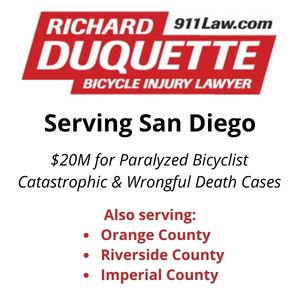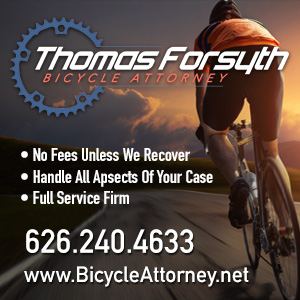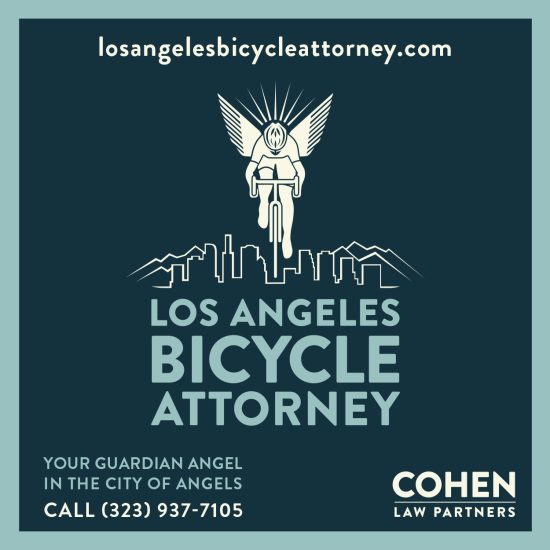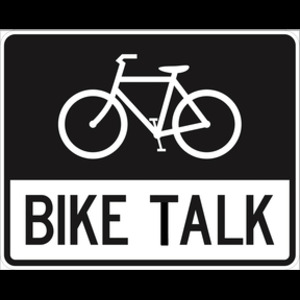Funny how quickly attitudes can change when people talk – and actually listen — instead of honking, screaming and gesturing.
As you may recall, relations between cyclists and motorists on PCH in Malibu, as well as the people who actually live and work in the city, haven’t exactly been on the best of terms.
If motorists weren’t running us down, residents were bitching about us taking the lane, riding abreast and blowing through traffic signals, all of which many believed were against the law.
And only one of which actually is.
It all hit the fan last July, when Malibu Public Safety Commissioner Susan Tellem introduced a short-lived Facebook page called Share the Road – Share the Tickets calling for riders to be cited for infractions real and imagined. And which many riders, myself included, took as a call to discourage cyclists from besmirching the ‘Bu with our bikes.
In the firestorm that followed, even a well-intentioned commentary by fellow Commissioner, endurance cyclist and firefighter Chris Frost pointing out that cyclists are in fact required to stop for red lights, and that the actions of a few reflect negatively on us all, brought out a flood of outrage.
Funny thing, though.
Along with Jay Slater, now president of the L.A. BAC, I was invited to meet with Tellem and Frost in an attempt to defuse the controversy and defend the rights of cyclists on PCH.
And what I found surprised me.
Rather than the rabid bike-hater I’d imagined, I found Susan to be a very pleasant woman, quite unlike the rich, entitled Malibu residents most of us imagine. And someone more than willing to listen to people who disagreed with her sharply — and to admit that there just might be another side to it.
Meanwhile, Chris, like many riders — and the Sheriff’s deputy who joined us — had some questions about what the law did and didn’t allow. But he was absolutely right that cyclists are required to stop for red lights, even when there doesn’t appear to be a reason for it.
So we formed a working group of concerned cyclists to address the issues, and let one of our members, a recent USC graduate named Eric Bruins — to the endless amusement of UCLA students, fans and alumni — take the lead, since he commuted by bike to his new job in the ‘Bu.
That led to a disastrous first attempt at a public hearing on the issues, as a regularly scheduled Malibu PSC meeting was overwhelmed by cyclists and those who hate us, leading to a number of angry confrontations.
Fortunately, Eric continued his behind-the-scenes proselytizing on behalf of bicyclists, quietly but persistently bending the ear of any city or law enforcement official who’d stop long enough to listen. And doggedly kept going until he thought there was enough agreement to make it worth attempting another meeting.
Fast forward to this past Saturday, when the Malibu Public Safety Commission hosted a workshop on safety and cycling issues on PCH. While it was open to the public, I’d respected a request not to publicize the event in order to keep the turnout small enough that we could hammer out the issues, rather than talk past each other once again.
I was there, along with Bruins, Slater, LACBC Executive Director Jen Klausner, ultramarathon and endurance cycling promoter Chris Kostman, and Alan Thompson, bike/ped coordinator for SCAG, along with a handful of other officials.
Malibu was represented by four of the five PSC members, as well as City Council members Lou La Monte and Laura Zahn Rosenthal and a few other city staff members.
Not surprisingly, the Caltrans reps failed to show up despite prior promises.
The morning started out almost exactly the way you’d expect, as commission member David Saul complained about cyclists riding two abreast in the traffic lane when there was a perfectly good shoulder for them to ride in.
The cyclists in the room responded that most of us would much rather ride on the shoulder, out of the way of passing cars. But that there were a multitude of reasons why bike riders would be forced to take the lane, from broken glass and potholes to parked cars, legal and otherwise.
Surprisingly, Saul listened.
And got it.
He responded that he’d never looked at it from a cyclist’s perspective before, and that we had really opened his eyes. And that in the future, he’d be more willing to slow down and give riders sufficient space.
Throughout the morning, the conversation was surprisingly calm and constructive. In fact, only one person got a little hot under the collar all day.
And, uh, that would be me.
Commission chair Carol Randall made a comment that we needlessly put ourselves in danger by riding two abreast in the center of the lane, and that cyclists do things like that “because they can.”
Unfortunately, I’d just heard that particular statement one time too many.
So I jumped up and stood in front of her, and used the rectangular room demonstrate proper lane positioning. Standing on the right of the room, I showed how it left room for drivers to squeeze past. But by pulling Kostman up next to me, showed how the two of us could control the space.
I also made it more than clear that virtually every sane cyclist on the road knows the risks we take when we pull out in front of oncoming cars — yet we do it because it’s often the safest course of action under the circumstances. And never, ever because we can.
And then I apologized for my little temper tantrum.
Bruins made another key point when someone complained about cyclists riding on or near the fog line, rather than further over on the shoulder. He explained that the shoulder of the road is where debris blown by passing cars collects, and that it seldom if ever gets swept. As a result, it’s often safer to ride closer to the traffic lanes where the road surface is significantly clearer.
That sank in, too. As did many of the comments made by the cycling contingent.
Unfortunately, I wasn’t taking notes this time, preferring my role as an active participant in the conversation to that of a passive reporter. But I can tell you that just about everyone representing cyclists made key points and offered valid suggestions. And each of the city officials listened and responded with an open mind, if not always full agreement, as well as offering suggestions of their own.
The day ended with promises of further cooperation in communicating the rights of cyclists, and working to improve safety for everyone on PCH. As well as sparking their interest in developing their own version of L.A.’s proposed anti-harassment ordinance.
And we promised to remind cyclists that we have to stop at red lights too — even those at T-intersections where there doesn’t seem to be much reason for it.
But you already know that, right?
Aside from pissing off motorists and other riders, red light running can affect the ability of residents to leave their own homes, as their view of the roadway is often limited and they rely on those traffic breaks to pull out of their garages safely.
Surprisingly, we also left with a much better relationship between cyclists and city officials.
Maybe even a budding friendship.
And less than one year ago, nothing would have been more surprising.
.………
That new relationship is reflected in a piece that appeared on the Malibu Patch site this morning, co-written by Susan Tellem and Eric Bruins.
It’s a great piece, very well written and well worth your time, both to read and to pass along to anyone who rides or drives on PCH.
.………
Another great piece worth reading appears on the Shortcuts blog hosted by KCRW’s traffic maven Kajon Cermak. In it, Steve Herbert, Chief Engineer for the Santa Monica-based public radio station, discusses his transformation from motor-dependent — in fact, multi-motor dependent — to happy bike commuter.
I know Steve, and can attest to his commitment to two wheels. And that he’s not the first person you’d expect to be a committed bike commuter.
So if he can do it…





